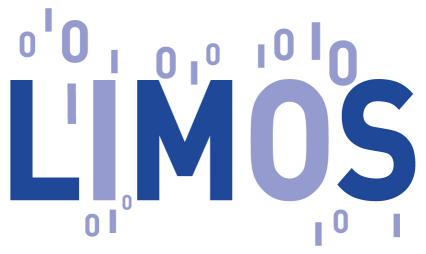|
Date : 20 juin 2023 09:30 - Type : Thesis - Weixuan XIAO - Salle C101 (salle du conseil)
Decoding techniques to cancel collisions in LoRa / Techniques de décodage pour annuler les collisions dans LoRa |
The development of the IoT extends its application to more specific scenarios, such as environmental monitoring with low power consumption. LoRa and LoRaWAN are representative techniques that provide configurable and self-deploying networks. However, deploying more devices in LoRa networks increases the frequency of collisions, which limits the network throughput.
In this thesis, we study the resolution of collisions in LoRa to improve network performance. We investigate and categorize existing collision resolution algorithms to understand their advantages and shortcomings. First, we introduce the concept of uncertainties, which are ambiguities in LoRa frames after the processing of multiple collision resolution algorithms. We propose an algorithm that leverages channel coding in LoRa to resolve these uncertainties. The algorithm serves as a complementary and generic algorithm to improve the decoding performance of existing collision resolution algorithms. The improvements brought by the algorithm are evaluated in a LoRaWAN network simulator.
Second, we propose a complete decoding scheme to decode collided LoRa frames in LoRaWAN networks. This decoding scheme requires modifications only on the gateway side of the LoRa network, ensuring compatibility with the LoRaWAN protocol. The decoding scheme tracks the frequency changes of LoRa symbols with virtual sub-slots in LoRa frames and computes symbol edges. Decoding performance depends largely on the number of virtual sub-slots used in decoding. In the presence of uncertainties, the generic algorithm can also operate. We also interpret the imperfectness of channels as uncertainties to solve them through processing with the full decoding scheme.
The performance of the decoding scheme is evaluated in a LoRa simulator based on GNU Radio, which processes signals captured from real hardware at signal sample levels. Simulation results show that our approach improves network performance. The simulator is also released to empower future development and evaluation of collision resolution algorithms and preamble detection algorithms in LoRa and LoRaWAN networks. We also demonstrate that LoRa frames generated by our simulator are consistent with LoRa frames from commodity LoRa nodes, confirming the realism and proximity of our simulation results to real experiments.
Composition of the jury:
Prof. Martin HEUSSE - Reviewer, ENSIMAG (Grenoble)
Prof. Congduc PHAM - Reviewer, Université de Pau
Dr. Oana IOVA - Examiner, INSA Lyon
Dr. Baozhu NING - Examiner, Semtech
Prof. Thomas NOËL - Examiner, Université de Strasbourg
Dr. Nancy EL RACHKIDY - Co-supervisor, Université Clermont Auvergne
Dr. Gil DE SOUSA - Co-supervisor, INRAE
Prof. Alexandre GUITTON - Thesis director, Université Clermont Auvergne.
